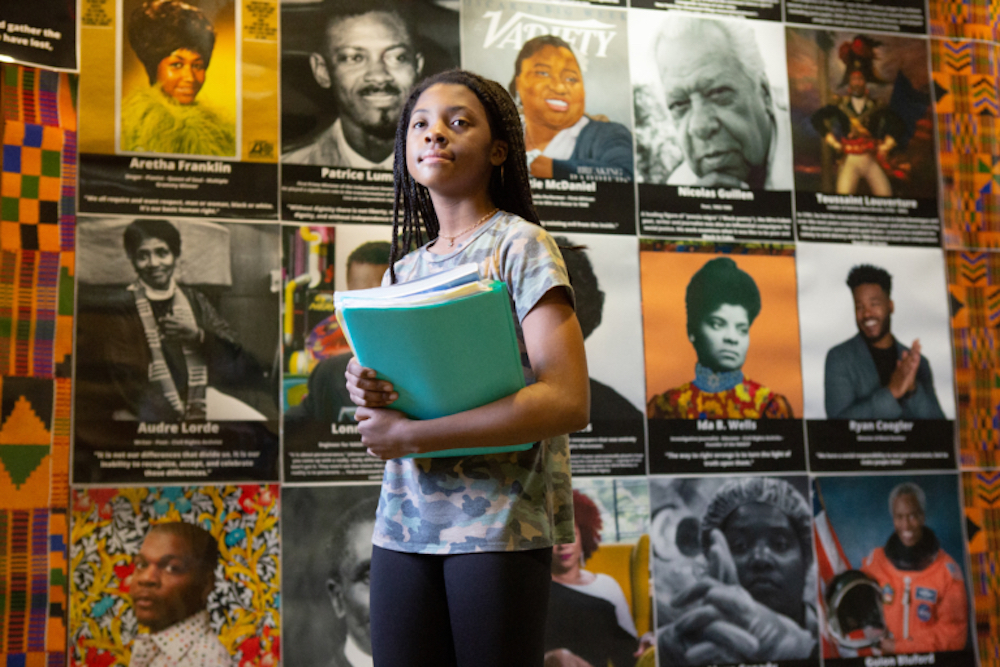Elected officials nationwide introduced at least 563 measures to restrict teaching about race in 2021 and 2022, and 241 of those passed, according to “CRT Forward: Tracking the Attack on Critical Race Theory,” a recently released report from the UCLA School of Law. Almost all the measures impacted K-12 education, and 70% sought to control teaching and curriculum in the classroom. The most common consequence for a breach was withholding funding.
“We are now living in a country where books and ideas can be banned in the name of freedom and censorship can be applauded as a means to combat indoctrination, and teachers can be fired for trying to teach any idea that someone deems divisive,” said Cheryl Harris, vice dean for community, equality and justice at UCLA Law during a webinar last week.
Sixty percent of the anti-CRT measures were adopted in conservative, or red states, according to LaToya Baldwin Clark, a co-author of the report.
California remains solidly blue, but arguments over the teaching of so-called critical race theory can be heard in some red areas of the state.
In California Placentia-Yorba Linda Unified, Visalia Unified, Paso Robles Joint Unified, Temecula Valley Unified, Ramona Unified and Newport-Mesa Unified collectively passed seven measures restricting instruction about race. Four additional measures were introduced in California school districts but not approved.
The state and local measures almost always invoke critical race theory, a college-level theory seldom taught in K-12 education. It examines how laws, regulations and government practices have perpetuated racial injustice. The theory is not included in California’s voluntary state model curriculum and is only taught in a handful of districts that have adopted an alternative curriculum promoted by the Liberated Ethnic Studies Model Consortium, a group of ethnic studies professors and high school teachers.
Critical race theory is often confused with culturally relevant teaching, according to the California School Boards Association.
“These measures purport to ban things like saying anyone should feel guilty or responsible for the past or the present, or that the United States is fundamentally racist,” Clark said.
Critical race theory is now being used to describe anti-gender measures as well as social-emotional learning, according to the researchers.
“In the K-12 context, it’s kind of a boogeyman,” Harris said. “It’s a made-up version. Nobody is teaching this version of CRT and yet it’s all traveling under the same sort of umbrella heading.”
Conservative groups like Reform California are encouraging more school boards to ban the teaching of Critical Race Theory and “to demand an honest and balanced view of U.S. history be taught to our children.”
The anti-critical race theory movement was a backlash to demands for racial justice and equality after the police killings of George Floyd and Breonna Taylor in 2020, Clark said.
“Looking at it in that context, I think we need to understand that this is really about resisting racial progress, not necessarily about CRT,” she said.
Many of the measures opposing critical race theory repeat language in a September 2020 executive order signed by former President Donald Trump. The order banned the federal government and its contractors from offering employee diversity training based on race or gender that the administration deemed “divisive.” The executive order was rescinded by President Joe Biden in 2021.
School officials of both Temecula Unified, in Riverside County, and Paso Robles Joint Unified, in San Luis Obispo County, used similar language as that in the executive order when they wrote measures that referred to critical race theory as a divisive ideology that can result in racial guilt. Both school districts end their resolutions with the same provision, that the theory can be included in classroom discussion as long as that instruction focuses on its flaws.
In Temecula, teachers filled an auditorium in last December to protest the resolution, according to The Mercury News. Union President Edgar Diaz called the resolutions “vague” and a “lightning-rod issue” for education, according to the article written by the Southern California News Group.
The Ramona Unified School District in San Diego used much of the same language in a civic education policy its school board passed on Aug. 12, 2021. The measure prohibits schools from using curriculum or teachers from teaching that one particular race is superior or inherently racist, sexist or oppressive. It prohibits instruction that would make a student feel “discomfort, guilt, anguish or any other form of psychological distress” on account of his or her race or sex.
Last April, Placentia-Yorba Linda Unified passed a policy prohibiting teachers from talking about critical race theory or using it as a framework to teach about race. The board doubled down in June with a resolution on the teaching of “controversial issues,” requiring teachers to address all sides of the issue when presenting educational information.

School board President Carrie Buck and board member Karin Freeman voted against the resolution, calling it censorship, according to the Voice of OC.
“At its worst, this resolution positions our educational program for abridgment of free speech and the creation of censorship and bans. This change creates obstacles and impediments for students’ success,” Freeman said in the article.
“I anticipate that the curriculum will suffer the consequence of dumbing down.”
“Our goal should never be to graduate modern-day Rip Van Winkles,” she said.
In 2021 the Visalia Unified school board voted against a motion to renew a charter school’s Newsela subscription. The platform provides news articles on topics like social studies and science customized to each student’s grade level. Some of the same board members who voted to renew the subscription two years earlier called it biased and said it teaches critical race theory, according to the UCLA report.
In July 2021 Newport-Mesa Unified School District paused anti-bias training put in place in 2019 after an antisemitic incident involving students after the Newport Harbor Republican Women and some parents campaigned against it.
Two months later the board voted to renew a revised contract for foundational anti-bias training for staff but exclude advanced training that would have explored the dynamics of power, privilege and perspective, according to the district agenda. Students would only receive training if they volunteer.
John Brazelton says anti-CRT sentiment hasn’t impacted him much as a science teacher at Newport Harbor High School, but it has had a chilling effect on other teachers.
“People aren’t teaching everything they did before,” he said.
Brazelton, who retires next year, says teachers aren’t valued in the current climate.
“Teachers are being accused of indoctrinating kids and not being trustworthy in terms of what curriculum to teach and what books we choose to have students learn,” he said. “But then some talking heads are saying we should be packing heat in the classroom. Are we trustworthy or not? Are we valued or not? I haven’t heard of any students being killed by reading the wrong novel.”
In 2021, the California Teachers Association provided guidance to its members about how to deal with politically motivated attacks on racial equity in schools, including avoiding the academic term critical race theory.
“The phrase, unfamiliar to most audiences, has been redefined by the political right as an all-purpose dog whistle. Talk instead about the more honest and more complete education our students deserve,” the guidance says.
The National Council for the Social Studies weighed in on the debate in 2021: “Critical race theory has been used by some as an argument to ban the teaching of such concepts as race, racism, white supremacy, equity, justice and social-emotional learning, as well as to limit the teaching of content such as slavery, Black history, women’s suffrage, and civil rights. Efforts to ban these topics aim to eliminate any discussion of race or the historical roots of racism in our classrooms. The accurate and truthful representation of historical events is necessary and beneficial for all students to learn.”
According to the UCLA report, government officials nationally are on pace to introduce as many anti-critical race theory measures this year as in the previous two years. In response, the CRT Forward Tracking Project will develop model legislation and school policies that lawmakers and school board members could use to ensure history is taught accurately, Harris said.
The American Civil Liberties Union also is pushing back against measures to limit teaching about race and racism, filing lawsuits on behalf of students, teachers and university professors. Its lawyers have argued that the measures violate students’ First Amendment rights and are so vaguely written that teachers and students can’t understand what is prohibited and what is allowed, said Emerson Sykes, an attorney for the ACLU.
“We need universities to nurture new ideas, challenging ideas (and to) challenge norms,” Sykes said. “It’s not the role of a state legislature to reach into a college classroom and tell professors what ideas they can and cannot teach.”
